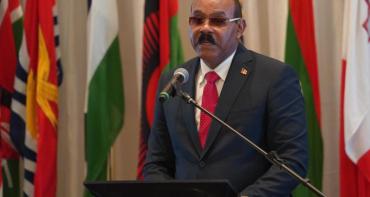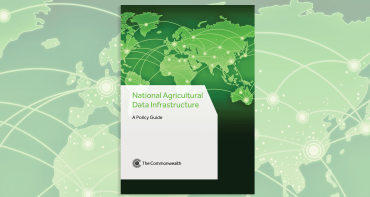Immigrants to the United Kingdom from Commonwealth countries are not investing as much money back to their home countries as they could. This ‘investment gap’ is a key finding from the first comprehensive assessment of UK diaspora investment.
The report, Understanding the Investment Potential of the Commonwealth Diaspora presents the results of a Commonwealth survey which identifies the untapped investment potential of six UK-based diaspora communities and measures its likely impact on their countries of origin.
The report was launched today by the Minister for Industry & Trade and Tourism for the Republic of Fiji, Hon Faiyaz Siddiq Koya at a joint session of the Women’s and Business Forums.
The report shows a gap between potential investors (64 per cent of respondents and 83 per cent of business owners) and those who actually have a savings accounts in their country of origin (42 per cent). It identifies a range of challenges – including perceived corruption, poor governance, fluctuating currencies, and a lack information which must be addressed if this gap is to be bridged.
Commonwealth Secretary-General Patricia Scotland said, “The survey shows that increased Commonwealth collaboration on economic incentives and innovative solutions could stimulate significantly increased flows of diaspora investment. Such action would generate valuable new transnational streams of finance to strengthen economic development, productive capacity and financial stability.”
UK-based High Commissions of six member countries – Bangladesh, Fiji, Ghana, Jamaica, Kenya and Nigeria –collaborated with the Commonwealth Secretariat on the report. These countries represent the Commonwealth’s diverse membership, have high remittance inflows and are actively pursuing initiatives to leverage diaspora finance.
Other findings include:
- Fifty-six per cent of those surveyed cited corruption as the main barrier to investment. Other obstacles include political instability and security concerns, weak legal frameworks and enforcement, and excessive bureaucracy;
- More than 52 per cent of respondents were interested in setting up a business over and above any other form of investment.
At the launch ceremony Minister Koya said: “The diaspora can be a huge asset for the development of the countries. They are a potential source of opportunities for trade, investment, innovation and professional networks that home countries can depend on. This study shows that diasporas have the potential to significantly increase their impact on development by scaling-up savings and investments.”
The report can be used to guide Commonwealth countries seeking to capitalise on diaspora investment. It provides a detailed summary of inherent preferences of diaspora communities, focusing on their potential and capacity to invest in countries of origin. The research also identifies existing practices and inclinations for future savings, financial risks and mechanisms to address these to incentivise savings.
The report marks the end of Phase 1 of the Commonwealth Secretariat’s project to mobilise diaspora capital for investments and savings in Commonwealth developing countries. Phase 2 will use the survey findings to develop country-specific diaspora finance projects, such as diaspora engagement or investment facilitation strategies. It will also feature the rollout of a toolkit to promote and facilitate diaspora investments.
Media contact
- Snober Abbasi Communications Officer, Communications Division, Commonwealth Secretariat



